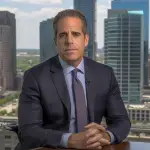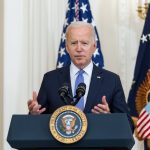The Supreme Court of the United States is gearing up to make a critical decision that could impact the rights of gun owners and manufacturers alike, as it recently entertained arguments in the case of Garland v. VanDerStok. At the center of this controversy is the Biden administration’s attempt to tighten regulations on so-called “ghost guns,” a term that would make even a seasoned survivalist roll their eyes. The case evaluates whether the Bureau of Alcohol, Tobacco, Firearms and Explosives (ATF) has overstepped its bounds by demanding that kits for assembling homemade firearms include serial numbers and mandate background checks for buyers, much to the chagrin of pro-2nd Amendment advocates.
The gist of the government’s argument hinges on a sensationalized notion of a “public safety crisis” that supposedly justifies burdening law-abiding citizens with more intrusive regulations. U.S. Solicitor General Elizabeth Prelogar took the floor to assure the justices that ghost guns are a significant factor in a purported explosion of crime. They represent a threat that requires sweeping governmental action. However, conservative commentators might question whether this is just another ploy to chip away at constitutional freedoms under the guise of safety—classic overreach, anyone?
The U.S. Supreme Court is reviewing the case Garland v. VanDerStok, which questions the authority of the ATF to regulate "ghost guns" by requiring serial numbers and background checks. The justices showed skepticism toward both sides, with potential… https://t.co/P1AxmDITj9
— The America One News (@am1_news) October 9, 2024
During arguments, Chief Justice John Roberts seemed to side with the narrative of the Biden administration, expressing skepticism that these kits could possibly be seen as mere hobbyist tools. The implication was clear: rather than embracing individual rights, the argument for stricter regulations is gaining traction. Fortunately, there are justices on the court like Samuel Alito, who stepped up to challenge this line of reasoning. Alito cleverly illustrated the absurdity of classifying basic components as firearms by likening the situation to ordinary household items. A blank notepad is simply that and not automatically a grocery list or anything more sinister. His point underscored a fundamental conservative principle—the need for clarity and reason in law rather than ambiguity that can be politically manipulated.
Justice Brett Kavanaugh entered the fray, echoing concerns regarding the potential consequences of labeling ghost gun sellers as criminals unaware of the laws they might be inadvertently breaking. This opens a significant dialogue about accountability and fairness in legal standards. It raises an essential question for Americans: Should law-abiding citizens find themselves caught in regulatory crosshairs simply because the government has decided to redefine terms in a way that suits its agenda? Every American should feel uneasy about a government that positions itself as the arbiter of technicalities to infringe upon rights.
Even as the Judiciary grapples with the Biden administration’s push to reframe ghost guns, commentators point to the implications this could have on manufacturers. Legal representatives argued that only Congress should have the power to regulate such contexts. Should this ruling side with the administration, it could send many businesses reeling, leaving a tangible impact on economic freedoms from the very people who should naturally benefit from a thriving market for personal firearm ownership and construction.
As the Supreme Court deliberates, it is evident that the stakes are high, and the underlying principles of governance and individual rights are in play. The verdict in this case will not only impact the future of federal gun regulations but also signal whether the current court remains steadfast in defending constitutional liberties against an increasingly invasive government. The ruling is anticipated by summer, and one thing is for sure: conservatives are watching closely to see if the court will uphold the values of personal freedom or buckle under the weight of political pressure.




